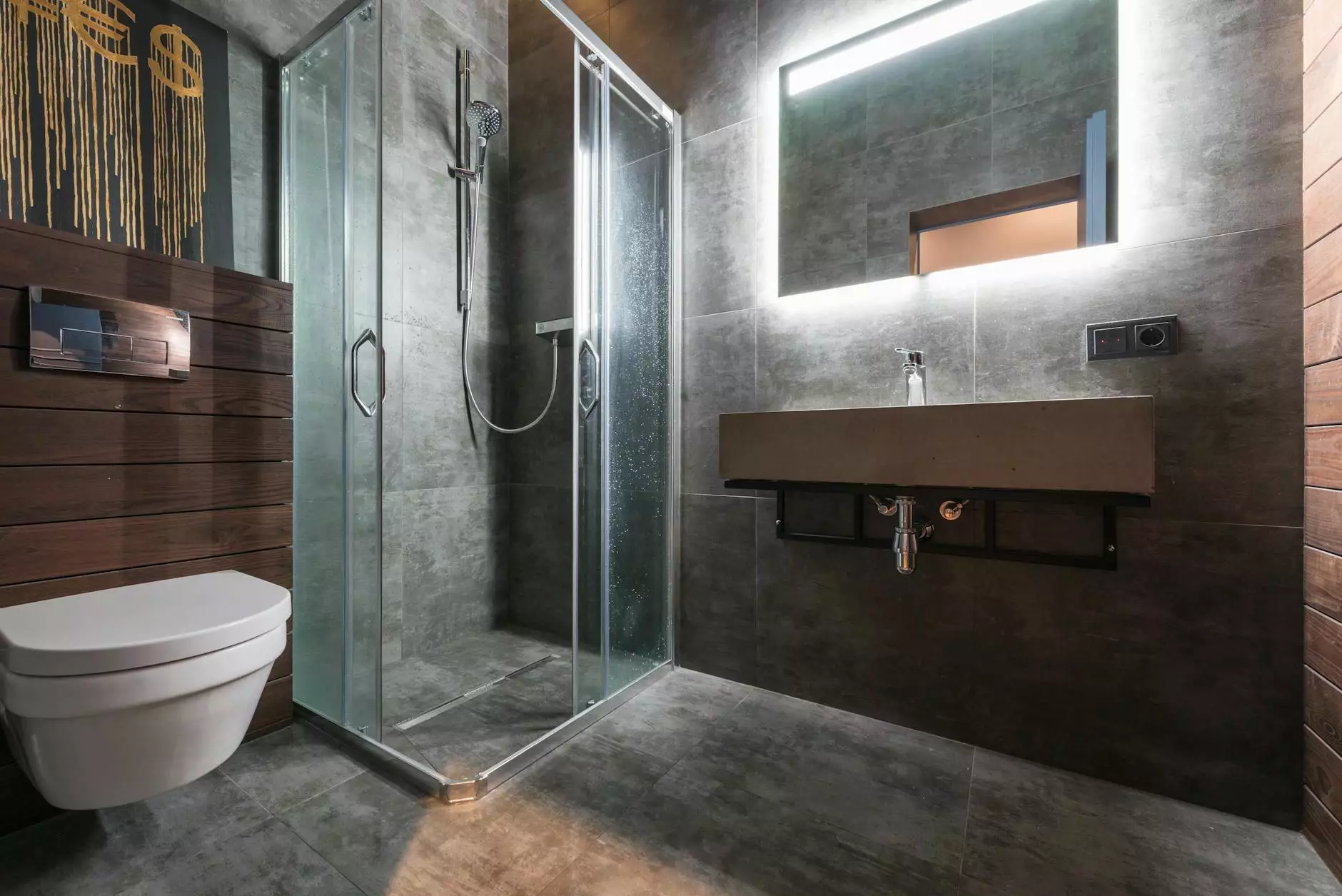Enhancing Accessibility and Comfort with Toilet Seats for Disabled Persons

In today’s world, inclusivity and accessibility are fundamental aspects of compassionate and responsible societal development. Among various facets of independent living, accessible bathroom solutions such as toilet seats for disabled persons play an essential role. These specialized seats are designed to provide comfort, safety, and dignity to individuals with diverse needs, ensuring they can manage personal hygiene with confidence and independence. As leaders in expressramps.com, a trusted provider of personal care services, home health care, and elder care planning, we recognize the profound impact that well-designed toilet seats for disabled persons have on enhancing quality of life.
The Importance of Accessible Toilet Seats in Promoting Independence
For many individuals with mobility challenges, traditional toilets pose significant obstacles that hinder daily routines. Standard toilet seats often lack the necessary support, height, or stability required for safe and comfortable use by disabled persons. Toilet seats for disabled persons are thoughtfully engineered to address these challenges, with features such as adjustable height, sturdy armrests, and ergonomic designs. These assistive devices empower users to regain control over their personal hygiene while fostering a sense of independence that is fundamental to mental and emotional well-being.
Key Features of Toilet Seats for Disabled Persons
- Height Adjustability: Ensures optimal height customization for safe sitting and standing transfers.
- Supportive Armrests: Provide stability and leverage during transfer, reducing fall risk.
- Contoured Seat Design: Offers comfort and promotes proper posture.
- Anti-Slip Surfaces: Enhance safety by preventing slips and falls.
- Hygienic Materials: Made from antimicrobial, easy-to-clean surfaces that maintain hygiene standards.
- Portable and Compact: Some models are designed for versatility, allowing use in various locations such as homes, healthcare facilities, or when traveling.
The Role of Accessible Toilet Solutions in Home Health Care
In home health care settings, toilet seats for disabled persons are instrumental in enabling caregivers and family members to support loved ones with dignity and efficiency. These devices often serve as integral components of a comprehensive personal care plan, addressing long-term needs for mobility, safety, and hygiene. Implementing appropriate toilet solutions can significantly reduce caregiver strain by simplifying routine tasks and minimizing injury risks for both the caregiver and the individual receiving assistance.
Furthermore, with technological advancements, modern toilet seats for disabled persons incorporate features that enhance usability and safety. These include electric controls, bidet functions, heated seats, and automatic lid opening/closing, which contribute to a more comfortable and autonomous experience.
Improving Elder Care with Specialized Toilet Seats
As populations age worldwide, elder care becomes increasingly centered around providing accessible, safe, and respectful environments. Toilet seats for disabled persons are vital in elderly care because they accommodate age-related mobility limitations, balance issues, or chronic health conditions such as arthritis or osteoporosis. By investing in high-quality, ergonomically designed toilet seats, caregivers can facilitate an elder's independence while preventing accidents, falls, or injuries during personal hygiene routines.
The Benefits of Upgrading to Specialized Toilet Seats in Elder Care
- Enhanced Safety: Reduces fall risks and accidents in the bathroom setting.
- Increased Comfort: Designed to fit elderly bodies comfortably, reducing pain and discomfort.
- Support for Mobility Limitations: Facilitates easier transfers and stable seating.
- Promotes Dignity and Privacy: Empowers elders to manage personal hygiene independently.
- Reduced Caregiver Burden: Simplifies assistance and minimizes physical strain.
Choosing the Right Toilet Seat for Disabled Persons: A Comprehensive Guide
Selecting an appropriate toilet seat for disabled persons involves careful consideration of individual needs, bathroom layout, safety features, and usability. Here are critical factors to consider:
Assessment of User Needs
- Mobility level and transfer ability
- Comfort preferences and ergonomic considerations
- Specific medical conditions impacting bowel or bladder functions
Evaluating Safety Features
- Secure mounting and sturdy construction
- Supportive armrests or grab bars
- Anti-slip bases or pads
- Ease of cleaning and maintenance
Considering Additional Features
- Adjustable height for personalized comfort
- Built-in bidet or cleansing functions
- Heated seats for thermal comfort
- Automatic or remote-controlled opening and closing
The Long-Term Benefits of Investing in Quality Accessible Toilet Solutions
Choosing the right toilet seats for disabled persons delivers long-term advantages that extend beyond immediate convenience. These benefits include:
- Enhanced Quality of Life: Increased daily independence boosts self-esteem and life satisfaction.
- Safety and Injury Prevention: Carefully designed seats minimize accidents and associated healthcare costs.
- Cost Effectiveness: Durable and high-quality toilet seats reduce the need for frequent replacements and repairs.
- Comprehensive Support for Caregivers: Simplifies caregiving routines, reducing stress and physical strain.
- Supports Inclusive Living: Accessible bathroom solutions create a welcoming environment for all community members, fostering social integration.
Our Commitment to Excellence in Personal Care and Home Health
At expressramps.com, we are dedicated to providing innovative, reliable, and user-friendly accessible solutions, including toilet seats for disabled persons. Our extensive range of products is selected to meet diverse needs, ensuring safety, comfort, and dignity for every individual. We understand that choosing the right equipment is a critical step toward fostering independent and fulfilling lives.
Collaborating with Healthcare Professionals and Caregivers
Implementing effective bathroom modifications often necessitates collaboration between healthcare professionals, occupational therapists, and caregivers. Our team offers expert consultation, ensuring that the selected toilet seats for disabled persons align perfectly with individual health requirements and environmental constraints. This collaborative approach guarantees optimal outcomes in safety, functionality, and user satisfaction.
Future Innovations in Accessible Bathroom Solutions
The field of accessible bathroom products is continuously advancing, driven by technological innovations. Future developments include smart toilets withAI-powered safety monitoring, seamless control systems, and adaptive features tailored to user preferences. Such improvements promise to elevate the standard of care and independence, making bathrooms safer and more intuitive for individuals with disabilities.
Conclusion
Ensuring that toilet seats for disabled persons are a fundamental part of personal care and elder care planning is more than a matter of convenience—it's a commitment to dignity, safety, and inclusivity. Properly designed toilet solutions can dramatically improve the daily lives of individuals facing mobility challenges, empowering them with greater independence and confidence. At expressramps.com, our goal is to deliver high-quality, innovative products that make accessible living a reality for everyone. Choose the right solutions today to foster safer, more inclusive, and compassionate environments for those who need it most.
By prioritizing accessibility and safety through the proper selection and implementation of toilet seats for disabled persons, we take meaningful steps toward a society where no one is marginalized due to mobility or health limitations. Our commitment is to support individuals, families, and caregivers in creating living spaces that honor dignity, promote independence, and enhance the overall quality of life.









